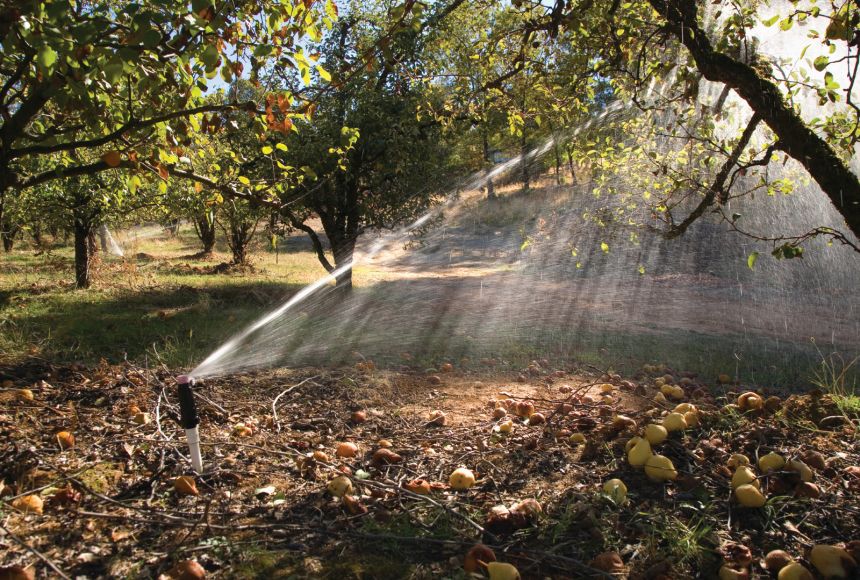
Sustainability is the practice of using natural resources responsibly today, so they are available for future generations tomorrow.
Earth Science, Climatology
Responsible use of water resources is an important factor to consider when discussing sustainability, especially in places like California, which are often subject to long droughts.
Photograph by the United States Department of Agriculture

Think about the natural resources you used today. Perhaps you used water to bathe or texted on a cell phone with copper , zinc , and other precious metals inside. Everything we use comes from natural resources. However, many resources are being depleted faster than they can be replaced. Sustainability is the practice of using natural resources responsibly, so they can support both present and future generations.
Forests are one natural resource that sustainability groups are focused on conserving. Forests made up about 30 percent of Earth’s land mass in 2015, but that number is at risk of decreasing. In 2018, studies showed that approximately 18 million acres of trees are cleared each year for lumber or agriculture. Deforestation destroys the habitat of other important organisms, including fruits, animals, and mushrooms that humans use for food or medicine. Deforested land also increases soil erosion , limiting the productivity of tree growth. The goal of sustainable forestry is to preserve forest ecosystems. Sustainable practices include planting new seedlings in deforested areas and reducing the number of trees cut down each year.
Especially as the human population grows, it is critical that we reduce our depletion of forests, precious metals, and other natural resources. The world population is expected to increase from 7.6 to 9.8 billion people by the year 2050. To decrease our dependency on fossil fuels, many scientists are researching renewable energy sources. The United States military is testing a vehicle fuel made from algae rather than petroleum . And concerns over freshwater sustainability have led to the development of rainwater harvesters, desalination machines, and even more incredible inventions. A European company has produced a drinking straw that filters bacteria, so people can safely drink water from contaminated ponds and lakes.